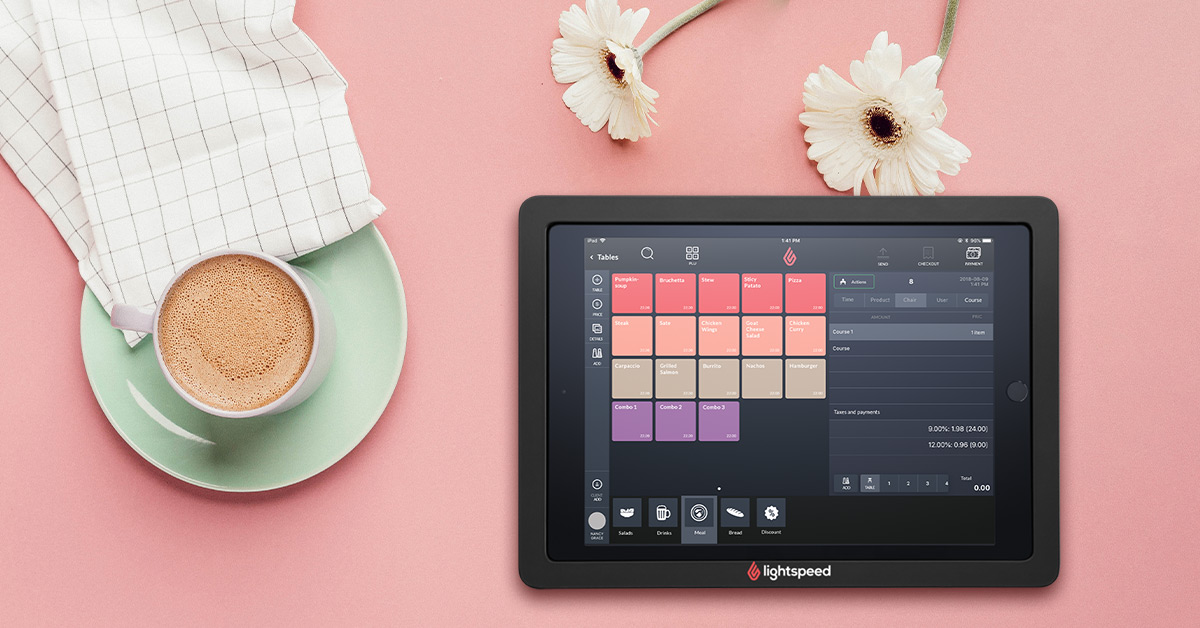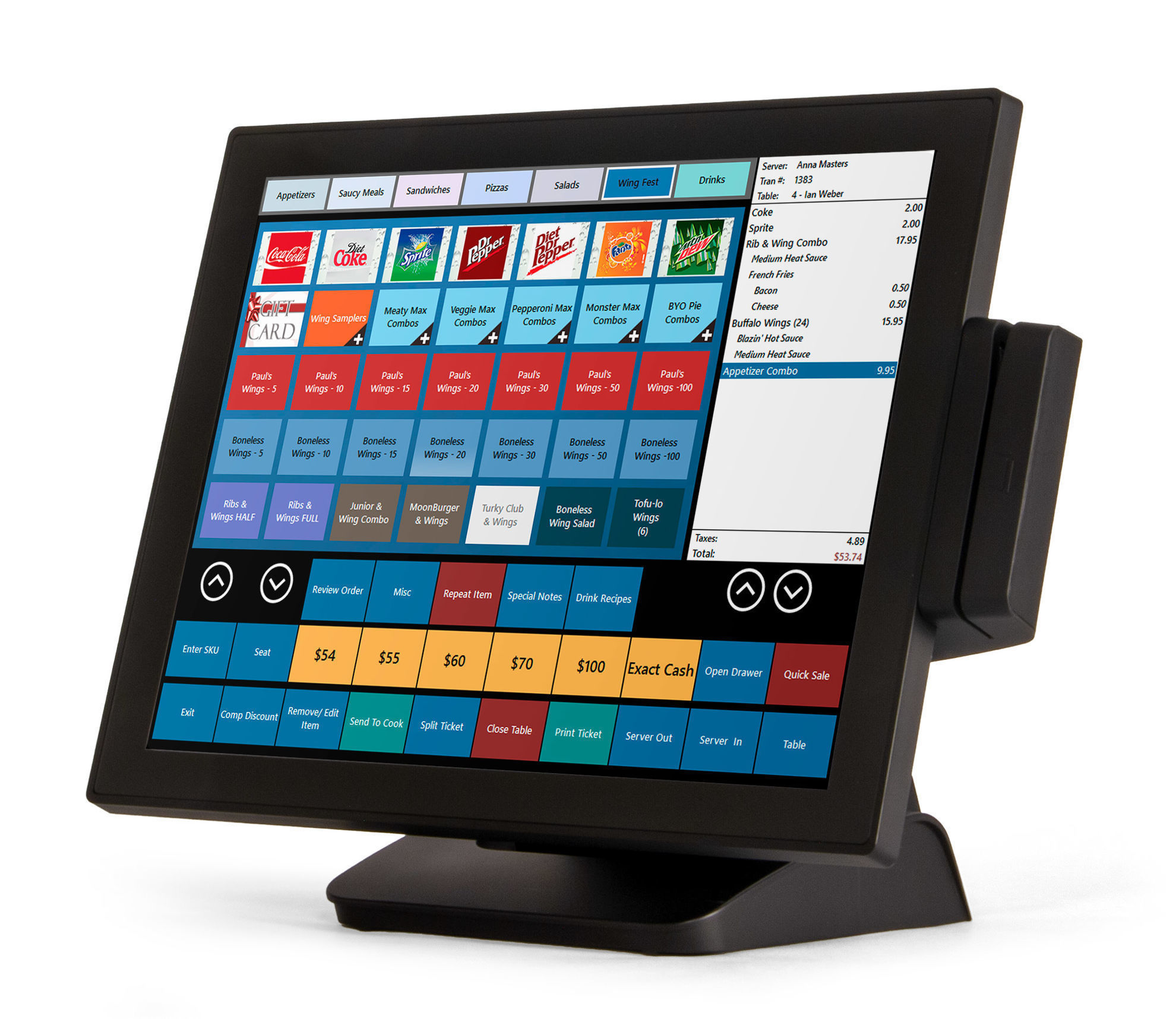Recognizing the Value of POS Software in Modern Retail Operations
In today's retail landscape, the duty of POS software has actually come to be progressively significant. These systems have transformed from standard money registers to multifaceted tools that boost different aspects of operations. They not just improve transactions however likewise offer insights that can form organization approaches. Understanding exactly how these systems effect consumer experience and inventory monitoring is important for any type of seller looking for to stay affordable. The implications of these improvements necessitate more exploration.
The Advancement of POS Software: From Deal Handling to Comprehensive Solutions

Enhancing Consumer Experience With Advanced POS Features

Improving Inventory Monitoring With Integrated POS Systems
Integrated POS systems play a crucial function in streamlining stock administration by automating procedures that typically required significant hand-operated initiative. These systems allow merchants to track inventory degrees in real time, eliminating disparities that often emerge from manual supply matters. With attributes such as barcode scanning and automatic supply replenishment notifies, services can keep ideal inventory degrees without overstocking or stockouts.Furthermore, incorporated POS systems facilitate exact projecting by assessing historic sales information, allowing sellers to make enlightened purchasing decisions. This predictive capability aids services adjust to transforming customer needs and seasonal patterns a lot more effectively.Additionally, the centralization of stock information across several sales networks improves presence, making it possible for retailers to handle their stock much more efficiently. Ultimately, the assimilation of POS systems right into stock management streamlines procedures, minimizes human mistake, and adds to raised profitability.
Real-Time Sales Tracking and Coverage for Informed Decision-Making

Exact supply administration lays the groundwork for efficient sales tracking and coverage. Real-time sales tracking enables sellers to monitor sales performance as it takes place, providing instant insights into client purchasing patterns and fads. This capability permits businesses to respond quickly to fluctuations in demand, enhancing stock levels and reducing overstock or stockouts.Moreover, integrated POS systems promote the generation of comprehensive reports, highlighting vital metrics such as sales by classification, time durations, and private items. Such reporting abilities empower retailers to make data-driven choices, recognizing effective approaches and areas requiring improvement.
The Duty of POS Software in Client Partnership Administration
POS software plays an essential role in enhancing client partnership administration by enabling retailers to apply personalized advertising approaches. By evaluating client information, businesses can customize promos and interactions to meet private choices. In addition, these systems facilitate the development of boosted commitment programs that urge repeat company and enhance client involvement.
Personalized Marketing Strategies
As sellers progressively seek to enhance client commitment and interaction, personalized marketing strategies have actually become a crucial element of effective customer relationship monitoring. POS software plays a vital role in this process by collecting and assessing customer data, enabling stores to tailor marketing efforts to specific choices and shopping actions. By leveraging understandings from purchase histories, retailers can create targeted promos and individualized interactions that resonate with customers, promoting a deeper link. Furthermore, the assimilation of POS software with client relationship administration systems permits smooth tracking of customer interactions, guaranteeing that marketing techniques continue to be pertinent and timely (Restaurant POS Software). This data-driven technique not only improves consumer contentment yet additionally drives sales and encourages repeat business, solidifying the store's market position
Boosted Loyalty Programs
Merchants are significantly recognizing the significance of loyalty programs in fostering lasting customer relationships and boosting overall engagement. POS software plays an essential duty in the development and administration of these programs, allowing sellers to track customer purchases, preferences, and behaviors successfully. By leveraging data analytics, companies can develop customized incentives and incentives that reverberate with individual customers, therefore enhancing engagement in commitment programs. Additionally, POS systems make it possible for smooth assimilation with mobile applications and digital platforms, assisting in simple accessibility to rewards and promos. This not just enhances client contentment but additionally drives repeat organization. Ultimately, POS software empowers sellers to grow deeper links with their clientele, transforming occasional buyers into devoted clients via targeted and purposeful engagement strategies.
Incorporating POS Systems With E-Commerce Operating Systems for Omnichannel Success
To accomplish true omnichannel success, seamless combination in between point-of-sale (POS) systems and e-commerce systems is necessary. This integration enables retailers to merge their supply management, ensuring that item accessibility is properly reflected throughout both online and physical shops. Customers take advantage of a cohesive shopping experience, where they can easily switch over between networks without running into discrepancies.Furthermore, incorporated systems assist in real-time data sharing, enabling services to assess client habits and choices better. This data-driven strategy allows merchants to customize advertising and marketing techniques and enhance supply levels, ultimately enhancing consumer satisfaction and driving sales.Additionally, the capacity to process deals throughout platforms simplifies operations, reducing the threat of errors and improving general effectiveness. As retailers increasingly take on omnichannel approaches, the combination of POS systems with ecommerce systems continues to be a vital aspect in attaining lasting development and preserving competitive advantage in the dynamic retail landscape.
Future Trends in POS Innovation and Their Effect on Retail Workflow
As retail procedures evolve, future patterns in POS modern technology are readied to reshape the best site landscape considerably. The surge of cloud-based remedies, innovations in mobile POS systems, and the benefits of AI combination are among the essential growths prepared for to enhance effectiveness and client experience. These developments assure to enhance processes and foster an extra vibrant retail environment.
Cloud-Based Solutions Rise
With the raising dependence on technology, cloud-based POS services are transforming retail operations by providing improved flexibility and scalability. These systems allow sellers to gain access to real-time data from anywhere, helping with much better decision-making and customer care. By leveraging cloud framework, businesses can decrease upfront costs related to equipment and software installments while ensuring seamless updates and maintenance. Additionally, cloud-based remedies support multi-location monitoring, permitting retailers to synchronize inventory and sales throughout various outlets effortlessly. This flexibility is essential in today's hectic market, where customer preferences shift rapidly. As even more merchants adopt these services, they can anticipate better operational performance and an extra responsive method to market demands, eventually boosting customer satisfaction and loyalty.
Mobile POS Innovations
The advancement of retail innovation remains to shape operations, particularly with the surge of mobile POS developments. These systems make it possible for retailers to process deals anywhere within the store, enhancing client involvement and simplifying checkout processes. Mobile POS services improve stock management by permitting instantaneous access to supply degrees, assisting staff help consumers a lot more successfully. On top of that, they assist in individualized shopping experiences through incorporated consumer information and loyalty programs. As mobile phones become significantly innovative, stores are embracing attributes such as contactless payments and digital receipts, in addition maximizing the purchasing journey. The change towards mobile POS not only enhances operational effectiveness however additionally lines up with the expanding customer choice for ease, making certain that merchants remain affordable in a rapidly developing market.
AI Assimilation Advantages
AI assimilation stands for a transformative leap in POS modern technology, providing merchants a myriad of benefits that enhance operational performance and customer experience. By leveraging device knowing formulas, retailers can evaluate purchasing patterns and maximize supply administration, decreasing waste and stockouts. Additionally, AI-powered analytics offer tailored marketing recommendations, you could try these out allowing targeted promotions that boost client interaction and loyalty. Chatbots and online assistants improve consumer solution, enabling for quicker resolution of queries and enhancing the general buying experience. Anticipating analytics can also forecast need trends, allowing smarter staffing and source allowance. Eventually, the combination of AI in POS systems encourages sellers to make data-driven decisions, cultivating an affordable edge in an ever-evolving retail landscape.
Often Asked Inquiries
What Are the Costs Connected With Implementing POS Software?
The expenses connected with carrying out POS software can consist of software licensing fees, equipment expenses, setup costs, training prices, and recurring maintenance. Each factor adds to the overall investment necessary for a successful implementation.
How Can Tiny Retailers Take Advantage Of POS Systems?
Tiny merchants can profit from POS systems via boosted deal effectiveness, streamlined inventory monitoring, and improved consumer understandings. These systems make it possible for far better decision-making, inevitably leading to boosted sales and consumer complete satisfaction in open markets.
What Equipment Is Required for a POS System?
A common POS system needs essential equipment parts, including a touchscreen display, cash money cabinet, barcode scanner, receipt printer, and repayment terminal. These elements collaborate to facilitate effective transaction processing and stock monitoring for sellers.

Can POS Software Be Personalized for Details Retail Requirements?
POS software can without a doubt be tailored to meet certain retail demands. Restaurant POS Software. This flexibility enables companies to customize attributes, user interfaces, and coverage devices, boosting functional effectiveness and providing a much more customized experience for both team and clients
Just How Safe And Secure Is Customer Data in POS Systems?
The security of client information in Discover More POS systems differs widely. Several systems carry out security, secure accessibility controls, and routine updates, yet susceptabilities can still exist, demanding continuous vigilance and proactive measures from sellers to secure delicate details.